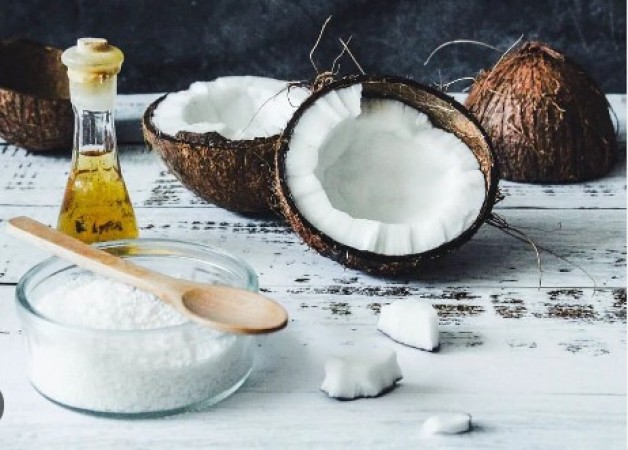
Dandruff is a prevalent scalp condition that affects millions of people worldwide. It is characterized by the shedding of dead skin cells from the scalp, often accompanied by itching and sometimes redness. While not harmful, dandruff can be embarrassing and lead to discomfort and self-consciousness.
Traditional Remedies Resurface
The Role of Camphor (Kapur)
Camphor (Kapur): A Traditional Solution
Camphor, known as "kapur" in many cultures, has long been valued for its medicinal properties. Used traditionally to treat various ailments, including respiratory issues and skin conditions, camphor is believed to possess antimicrobial and anti-inflammatory properties that could benefit scalp health.
Investigating Camphor's Anti-Dandruff Properties
Although anecdotal evidence suggests that camphor may be effective against dandruff, scientific research on its specific effects is limited. However, studies have shown that camphor exhibits antimicrobial properties, which could potentially help combat the fungus Malassezia, commonly associated with dandruff.
Coconut Oil: Nature's Moisturizer
The Coconut Oil Craze
Coconut oil has garnered significant attention in recent years as a natural remedy for various health and beauty concerns, including hair care. With its rich emollient properties, coconut oil is often praised for its ability to nourish both hair and scalp.
Exploring Coconut Oil's Benefits
Coconut oil contains fatty acids, such as lauric acid, which possess antimicrobial properties. These properties may help to inhibit the growth of Malassezia, the fungus implicated in dandruff. Additionally, coconut oil's moisturizing effects can help soothe and hydrate the scalp, potentially reducing itchiness and flakiness.
Expert Insights
The Verdict from Dermatologists
Expert Opinion: Dr. Smith
Dr. Smith, a dermatologist, emphasizes the importance of evidence-based treatments for dandruff. While camphor and coconut oil may offer potential benefits, they should not be viewed as standalone solutions. Dr. Smith recommends using these natural remedies as complementary therapies alongside medically proven treatments, such as medicated shampoos or topical antifungal agents.
Dr. Patel's Perspective
Dr. Patel, another dermatologist, acknowledges the traditional use of camphor and coconut oil for scalp health. However, she cautions that what works for one individual may not necessarily work for another. Dr. Patel highlights the importance of personalized care and recommends consulting with a dermatologist to determine the most effective treatment approach for managing dandruff.
The Role of Clinical Studies
Bridging Tradition with Science
Challenges in Research
Despite centuries of traditional use, there is a lack of extensive clinical research on the efficacy of camphor and coconut oil specifically for treating dandruff. Conducting rigorous studies on natural remedies presents several challenges, including standardization of extracts, dosage determination, and the absence of appropriate placebo controls.
Overcoming Hurdles
Addressing these challenges is essential to obtaining credible scientific evidence regarding the effectiveness of camphor and coconut oil for dandruff. By standardizing study protocols, controlling for confounding variables, and employing robust research methodologies, researchers can better evaluate the therapeutic potential of these natural remedies.
Practical Tips
Incorporating Camphor and Coconut Oil into Your Routine
How to Use Camphor
For those interested in exploring camphor's potential benefits for dandruff, incorporating it into a scalp treatment regimen may be worth considering. One approach involves diluting camphor oil in a carrier oil, such as coconut or olive oil, and applying it directly to the scalp before shampooing. This treatment can be performed regularly to help alleviate symptoms of dandruff.
Harnessing the Power of Coconut Oil
Coconut oil enthusiasts can take advantage of its moisturizing and antimicrobial properties by massaging warm coconut oil into the scalp and leaving it on for several hours or overnight before washing it out. Regular use of coconut oil may help improve scalp health, reduce inflammation, and alleviate symptoms of dandruff. While camphor and coconut oil hold promise as natural remedies for dandruff, their specific efficacy and safety profiles have yet to be conclusively established through scientific research. Dermatologists stress the importance of evidence-based treatments and recommend using these remedies as adjunctive therapies alongside medically proven interventions for dandruff management. Further clinical studies are needed to validate the potential benefits of camphor and coconut oil and to inform evidence-based guidelines for their use in dandruff treatment.
Waiting for a diesel car? These 5 vehicles will be launched soon!
Here's How Google Offers 300% Salary Hike to Retain Employees Amidst Tech Layoffs
Major Boost for Karnataka: Air India, Tata Advanced Systems to Invest Rs 2,300 Cr, Create Jobs